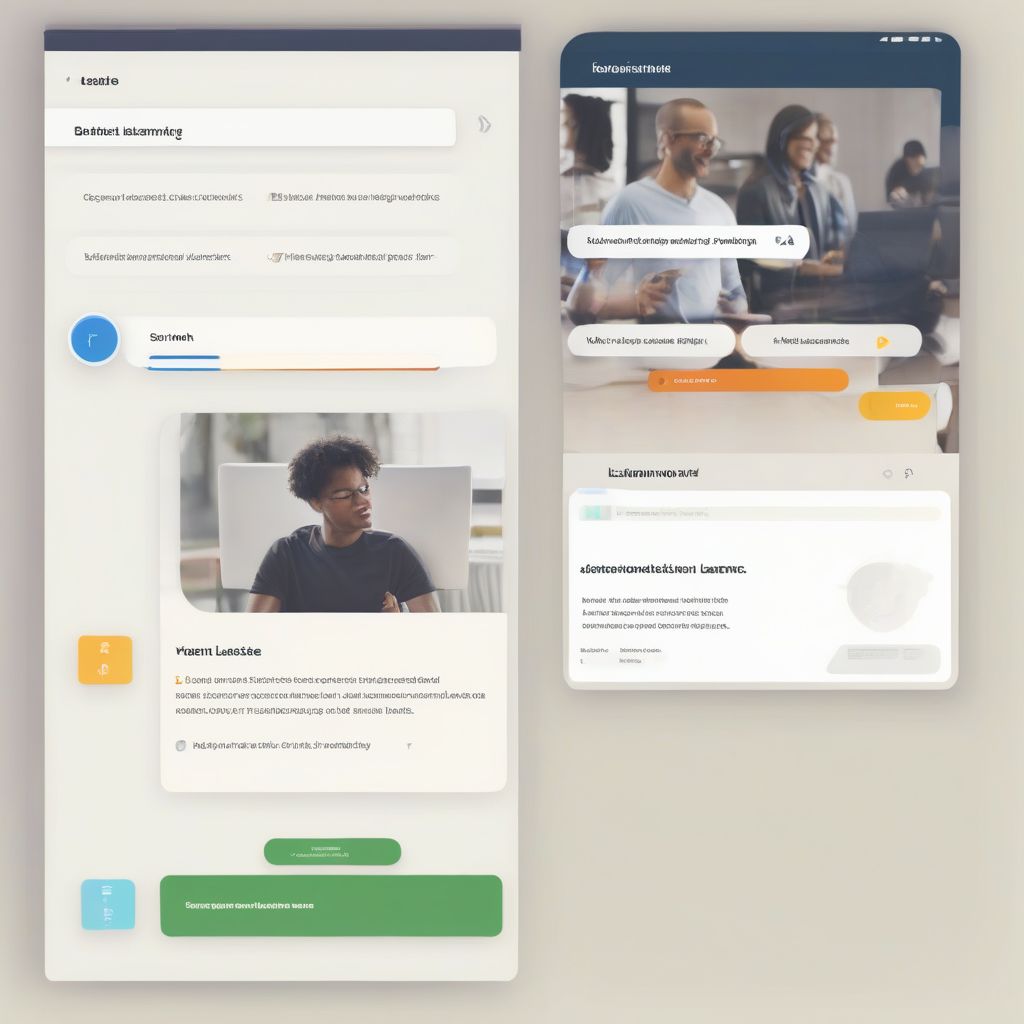Imagine a world where learning any tech skill is as easy as ordering a pizza. You pick what you want, it’s delivered to you in a digestible format, and you enjoy the results. This isn’t science fiction; it’s the rapidly approaching future of tech tutorials and digital learning platforms. Driven by advancements in AI, personalized learning, and immersive technologies, the way we acquire tech skills is undergoing a radical transformation.
Personalized Learning Paths: Tailored to Your Needs
One-size-fits-all tutorials are becoming a thing of the past. The future of tech education focuses on personalized learning paths. Imagine a platform that assesses your current skill level, understands your learning style, and then creates a customized curriculum just for you. This personalized approach allows you to learn at your own pace, focusing on the areas where you need the most support. This not only makes learning more efficient but also more engaging. “Personalized learning is not a trend, it’s the future,” says hypothetical expert, Dr. Eleanor Vance, author of “The Personalized Learning Revolution.” These platforms can even adapt in real-time, adjusting the difficulty and content based on your progress.
 Personalized Learning Platform
Personalized Learning Platform
The Rise of AI-Powered Tutors and Mentors
Forget static tutorials. AI-powered tutors and mentors are on the horizon, offering personalized feedback and guidance throughout your learning journey. These virtual assistants can answer your questions, provide hints, and even offer encouragement when you’re struggling. They can analyze your code, identify errors, and suggest improvements, acting as a 24/7 support system. “AI tutors can bridge the gap between passive learning and active application,” says hypothetical coding expert, John Smith, in his book “Coding with AI: The Future of Tech Education.” This personalized feedback loop accelerates learning and ensures you’re always on the right track.
Immersive Learning Experiences: VR and AR
Virtual Reality (VR) and Augmented Reality (AR) are poised to revolutionize tech tutorials. Imagine learning to code by actually stepping inside a virtual computer, or troubleshooting a network issue by interacting with a holographic representation. These immersive experiences offer a level of engagement and understanding that traditional tutorials simply can’t match. VR and AR can simulate real-world scenarios, allowing you to practice your skills in a safe and controlled environment. “Immersive learning isn’t just about engagement; it’s about creating a deeper, more intuitive understanding of complex concepts,” notes hypothetical VR educator, Maria Garcia.
Microlearning: Bite-Sized Knowledge for Busy Lives
In today’s fast-paced world, finding time for lengthy tutorials can be challenging. That’s where microlearning comes in. This approach breaks down complex topics into short, digestible modules, allowing you to learn in bite-sized chunks. These microlearning modules can be consumed anytime, anywhere, making them perfect for busy professionals or anyone with a limited schedule. This approach also caters to shorter attention spans and allows for more frequent reinforcement of key concepts.
The Power of Community: Collaborative Learning
The future of tech education isn’t just about individual learning; it’s about community. Online forums, collaborative coding platforms, and virtual study groups are becoming increasingly popular. These platforms allow learners to connect with peers, share knowledge, and support each other throughout their learning journey. This sense of community fosters motivation and provides a valuable network of support.
Democratizing Tech Education: Access for All
One of the most exciting aspects of the future of tech tutorials is the potential to democratize tech education. Online learning platforms can reach anyone with an internet connection, regardless of their location or socioeconomic background. This opens up opportunities for individuals who may not have access to traditional educational institutions. “Technology has the power to break down barriers and create a more equitable future for education,” shares hypothetical education advocate, David Lee, in his TED Talk on accessible education.
The Evolving Role of Educators
As digital learning platforms become more sophisticated, the role of educators will also evolve. Rather than simply delivering information, educators will become facilitators, mentors, and guides, helping learners navigate the vast landscape of online resources. They will curate personalized learning paths, provide individualized support, and foster a sense of community.
Challenges and Opportunities
While the future of tech tutorials is bright, there are also challenges to overcome. Ensuring quality control across a vast array of online resources, addressing the digital divide, and maintaining a human element in an increasingly automated learning environment are all important considerations. However, the opportunities far outweigh the challenges. By embracing innovation and prioritizing personalized learning, we can create a future where anyone can acquire the tech skills they need to thrive in the digital age.
Conclusion
The future of tech tutorials and digital learning platforms is dynamic and exciting. From personalized learning paths and AI-powered tutors to immersive experiences and microlearning, the way we learn tech skills is undergoing a radical transformation. This evolution promises to make learning more efficient, engaging, and accessible than ever before. By embracing these advancements, we can empower individuals to acquire the skills they need to succeed in the ever-evolving digital landscape. What are your thoughts on the future of tech education? Share your insights in the comments below!



